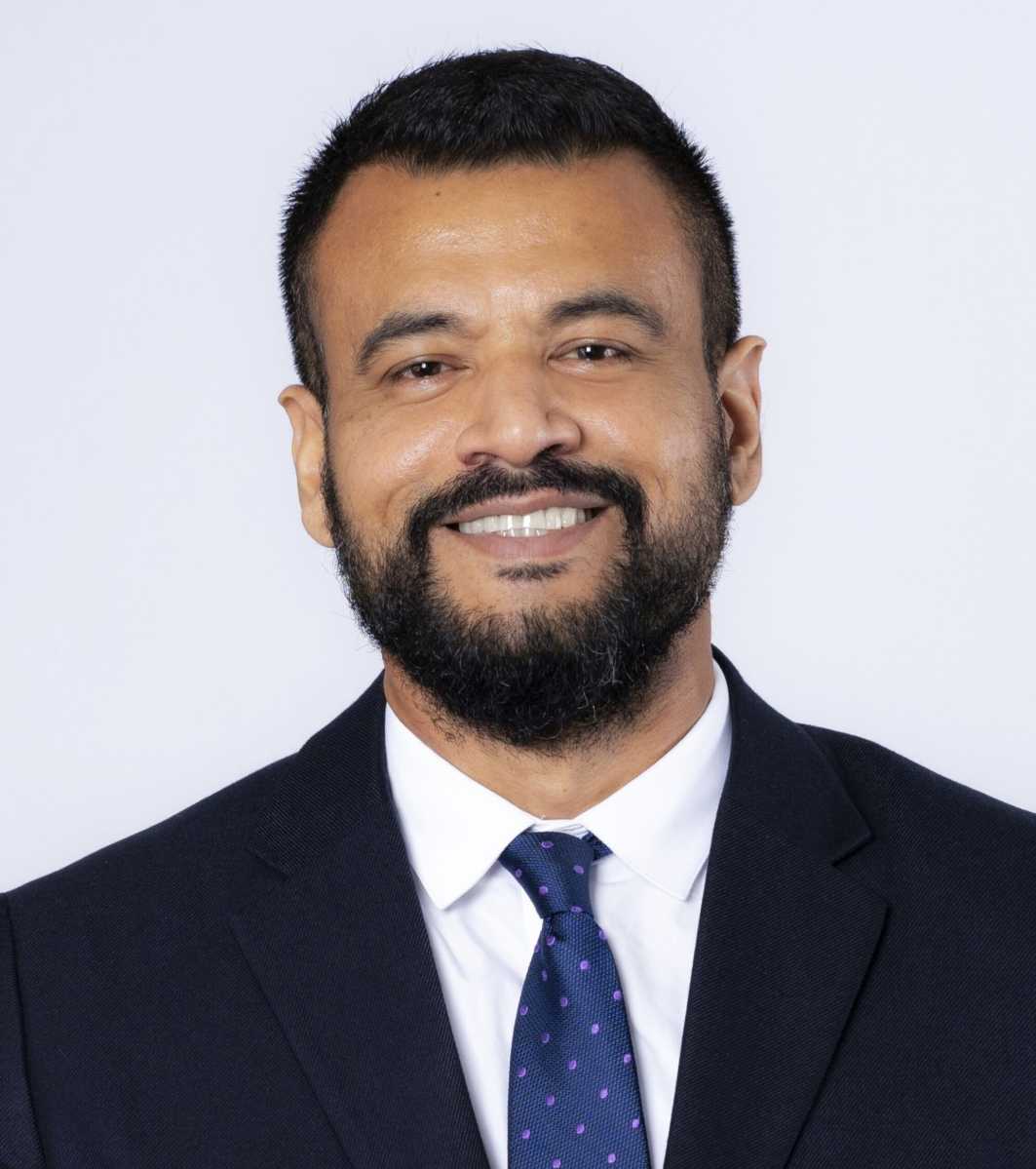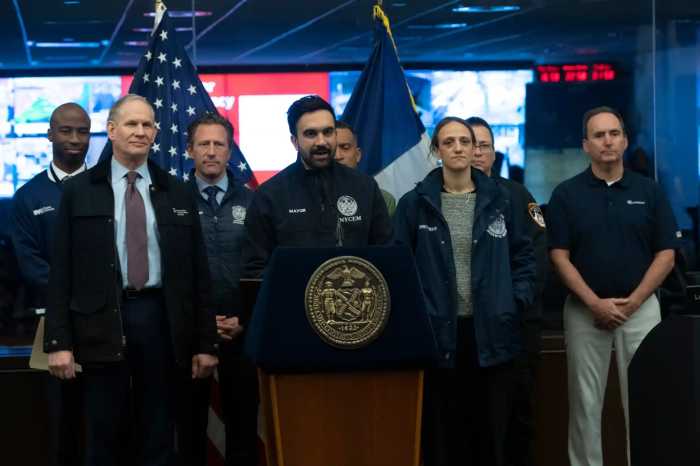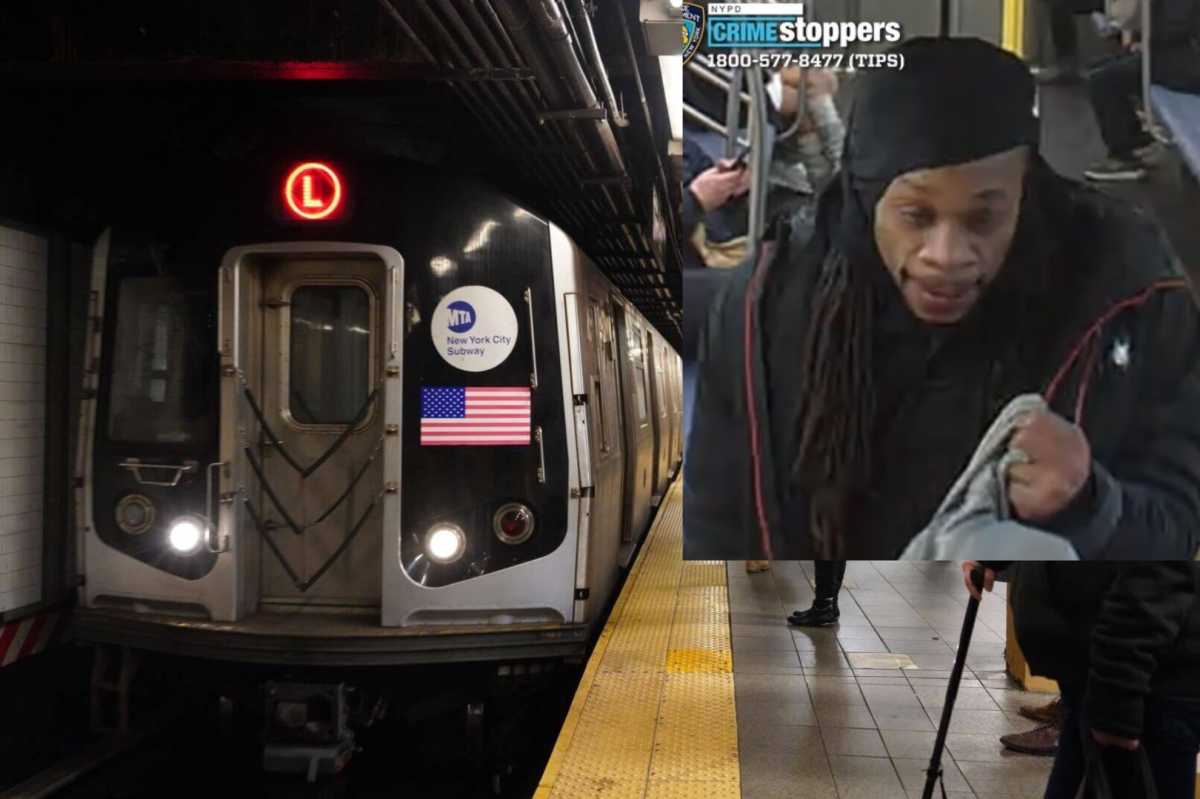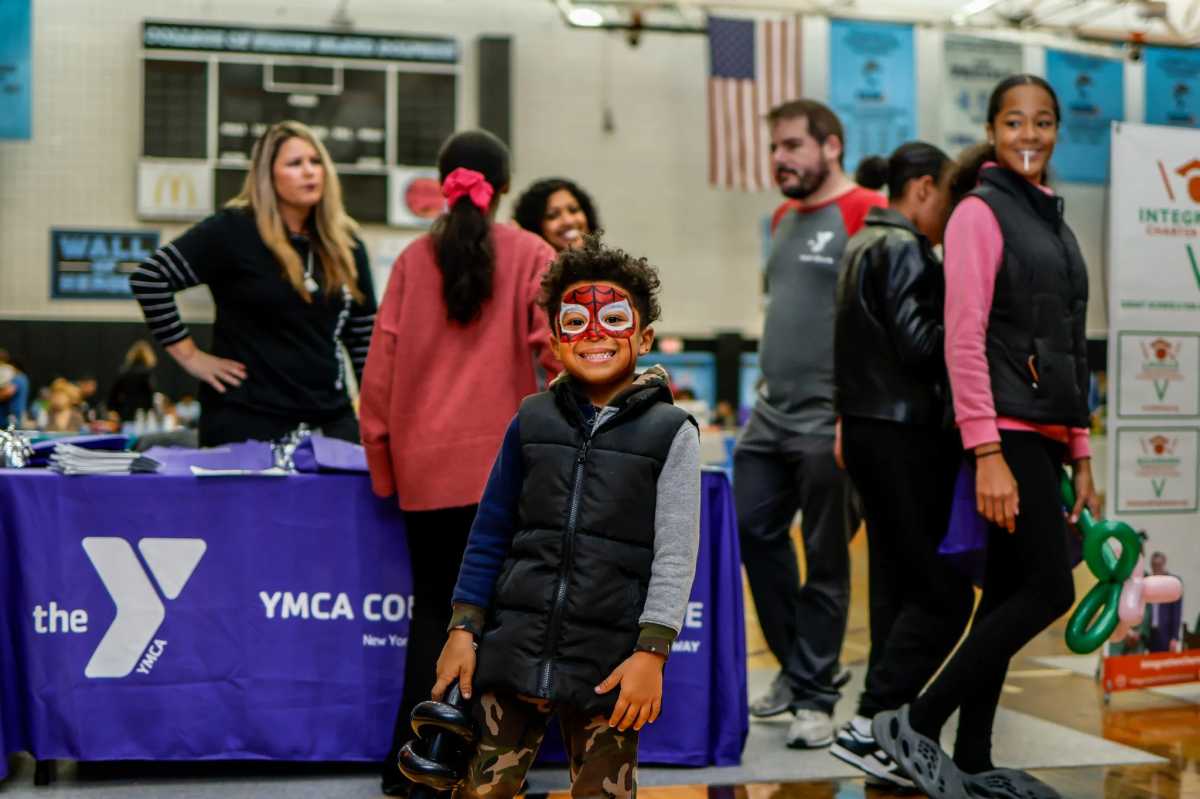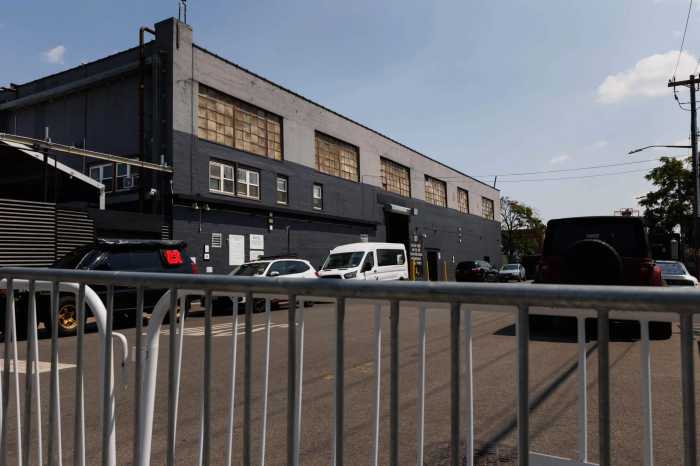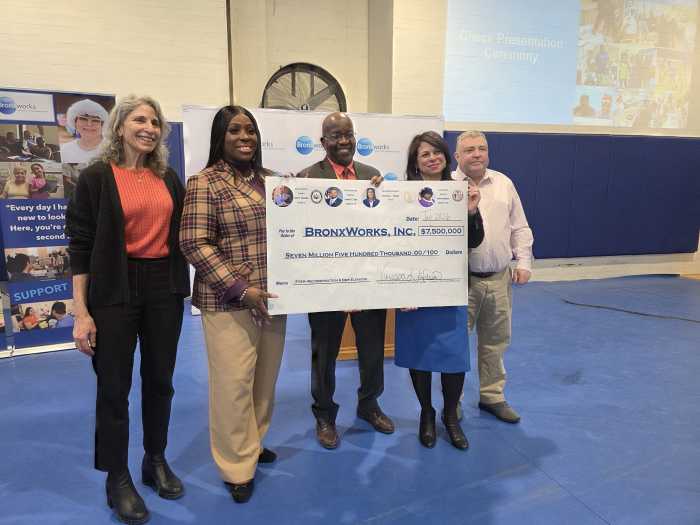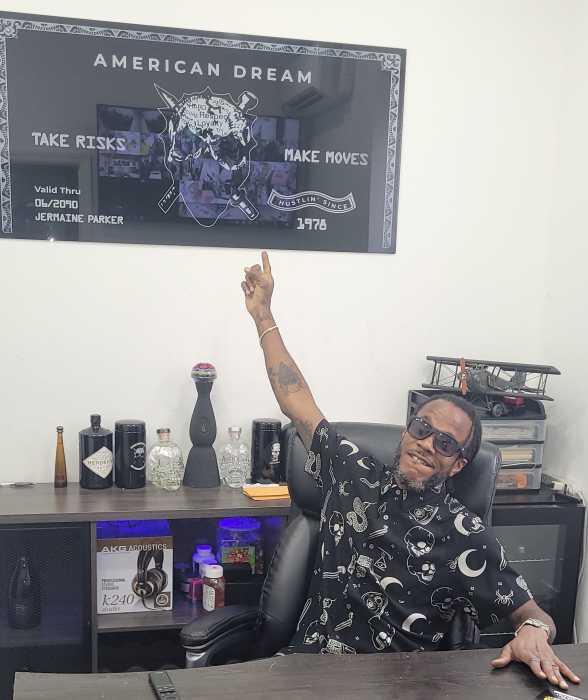The Brooklyn Community Pride Center, Inc. is under new leadership. Kenrick Ross officially took the helm as the center’s new executive director October 2.
Ross officially announced his new position on LinkedIn November 2.
The veteran non-profit professional succeeded Jessica Greer Morris, who served as interim executive director until August 29. She stepped in following the departure of Floyd Rumohr who served as chief executive officer of the center until September 2022.
The Brooklyn Community Pride Center’s Omari Scott, director of development and communications, and Jako Douglas-Borren, director of programs, managed the organization’s day-to-day operations for a month until Ross took the helm in October.
The Brooklyn Community Pride Center offers a wide range of programs and services that include mental health support, youth services, gender-affirming transition workshops, legal clinics for asylum seekers, and more for the borough’s diverse LGBTQ community.
Ross, 43, a gay man, comes to the Brooklyn Community Pride Center after a two-year tenure as the executive director of the National Queer Asian Pacific Islander Alliance, the largest LGBTQ Asian Pacific Islander organization in the United States.
A passionate advocate for social justice, Ross has more than 15 years of experience working in the nonprofit sector and social impact.
“I am excited by this because there is something important and there’s something beautiful about seeing the impact of [the] mission and programming on people’s lives on a day-to-day basis,” Ross said.
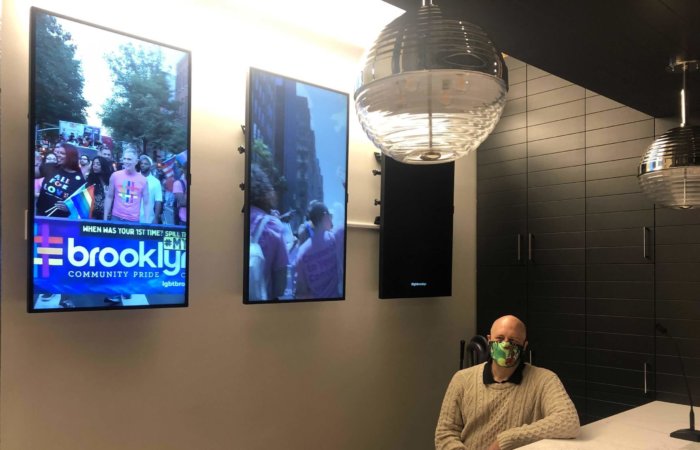
Return to community
Gay City News sat down with Ross in a virtual interview to discuss why this is the right role for him right now and his vision for the Brooklyn Community Pride Center.
“It was about finding a place where I and my family could build and grow,” Ross said. “I wanted to be really intentional that the next place I am at is the right fit for all these different things, not just because I find it to be an exciting challenge.”
Ross was born in Guyana and raised in the New York City area. He currently lives in Newark, New Jersey, but is looking to buy a home with his husband of 20 years, Joseph Jones, who is director of policy advocacy and research at the Federation of Protestant Welfare Agencies in New York City, in Brooklyn — the borough where the couple married — and start a family, he said.
LGBTQ centers have a special place in Ross’ life. New York City’s LGBTQ center, The Center, provided a space for him to grow and evolve after coming out when he was 17 years old, he said.
“Community space is essential,” he said, especially during this highly charged period in time when the LGBTQ community, especially transgender youth and drag artists, are under attack with more than 500 proposed anti-LGBTQ bills in State Legislatures across the country and Congress.
“The very existence of queer and trans people, I think, is up for debate in this country in a way that 10 years ago would have seemed unbelievable,” he said.
Ross was attracted to the Brooklyn Community Pride Center because he wanted to return to doing place-based work, which was his focus for most of his career, but with the policy and advocacy lens he developed at the National Queer Asian Pacific Islander Alliance. The place-based work, he said, allows him to “bring that policy and advocacy lens” to the services and programming provided at the Brooklyn Community Pride Center.
The right fit
The Brooklyn Community Pride Center’s executive search team was led by Kevin Chase, an out gay managing partner at Kevin Chase Executive Search Group, along with the Brooklyn Community Pride Center’s board president, Sonelius Kendrick-Smith, who also chaired the selection committee, among other board members.
A conversation with Chase and Ross at Creating Change in San Francisco in February led Chase to suggest Ross for the position.
Chase told Gay City News that the Brooklyn Community Pride Center had “a pretty complex mix of both professional and lived experience” as its criteria for its next leader.
“Kenrick just had not only professional experience, but also lived experience that really aligned [with] the Brooklyn Community Pride Center,” said Chase, who noted Ross was a “unanimous selection” by the selection committee.
According to his biography, Ross founded several community-based organizations and held leadership roles and other positions in non-profit organizations in New York City, mostly in Brooklyn. He’s also served on a dozen boards and is a sought-after speaker and facilitator. Additionally, he made two short films and co-produced “Queens At Court,” a short documentary about amateur LGBTQ tennis, which screened at US and Canadian professional tennis tournaments. Ross is an avid tennis player, competing in more than 70 amateur tennis tournaments, including the Gay Games.
Ross held executive roles at some Brooklyn-based organizations and has lived in the borough for much of his career. He’s an immigrant with roots in the Caribbean and is of Indian heritage, which speaks to a large percentage of Brooklyn’s community.
According to the Williams Institute at the UCLA School of Law, a Los Angeles-based LGBTQ think tank, the New York metro area, which includes the greater New York area and Newark-Jersey City, New Jersey, has the highest population of LGBTQ adults of any metro area in the US, with an estimated 706,000 LGBTQ residents.
Statistics gathered by the Brooklyn Community Pride Center found that of the 8.5 million residents in New York City’s five boroughs, nearly one-third live in Brooklyn — more than any other borough — and the borough is home to 34% of New York City youth. Brooklyn also has the highest proportion of transgender or non-binary-identified individuals and the largest number of lesbian residents, according to the statistics, and around 38% of Brooklyn’s population is made up of immigrants. Its LGBTQ residents are twice as likely as those living in Manhattan to be people of color.
Kendrick-Smith, a Black gay man, said Ross was the “best fit” to serve as the Brooklyn Community Pride Center’s second executive director because he “brought a set of unique skills that we believed were right for the Brooklyn Community Pride Center.”
“Kenrick understands the importance of grounding the work in service of those who depend on the center and also visioning a future,” he said.
Chase added, “Kenrick [is] just really a community guy. He understands community. He’s connected to community. He thinks about community and about community impact in all the work he does.”
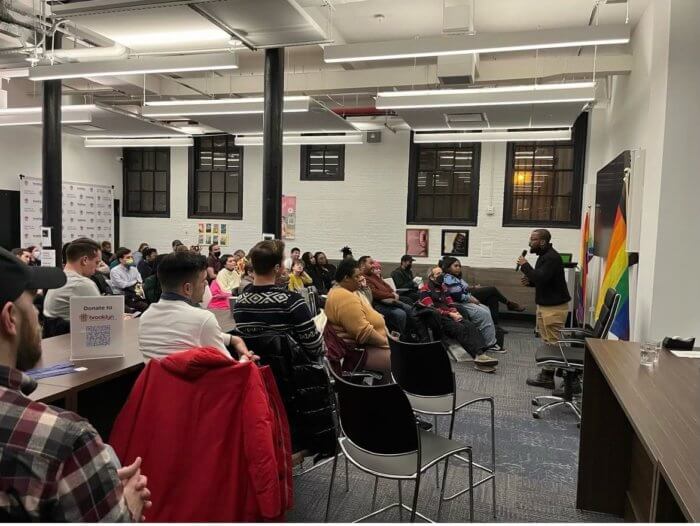
Dynamic community
“Brooklyn is dynamic and unique,” Ross said, highlighting the size and diversity of the borough.
“I know there is so much potential around programming for LGBTQ communities across Brooklyn,” he said. Ross knows the physical centers, which are still fairly centralized in Brooklyn, aren’t enough. He asked, “How do we build within the physical centers and how do you build beyond it?”
“We are the largest community, but we are the least well-funded,” Ross continued. “Funding needs to be addressed. This is the largest borough… and proportionately we received the least amount of funding for LGBTQ services.”
“We need to have the investment from the city match the size and the scope of the LGBT community in Brooklyn,” he added, stating, “I’m building in and building out.”
Ross is particularly focused on continuing to build alliances with other Brooklyn queer community organizations, especially transgender groups, and businesses to strengthen the vigorous network the Brooklyn Community Pride Center already started and bolster investment in the center.
First, Ross plans to conduct a community needs assessment to discover needs and problem areas, as well as what’s working during the next six months. He also plans to do a lot of listening and asking questions about what visibility looks like for queer and transgender folks, what safety looks like, and what programming looks like, all while walking neighborhoods with activists, small business owners, and other stakeholders.
“Queer and trans Brooklynites deserve equal access, equal safety, and equal affirmation everywhere they live,” Ross said.

